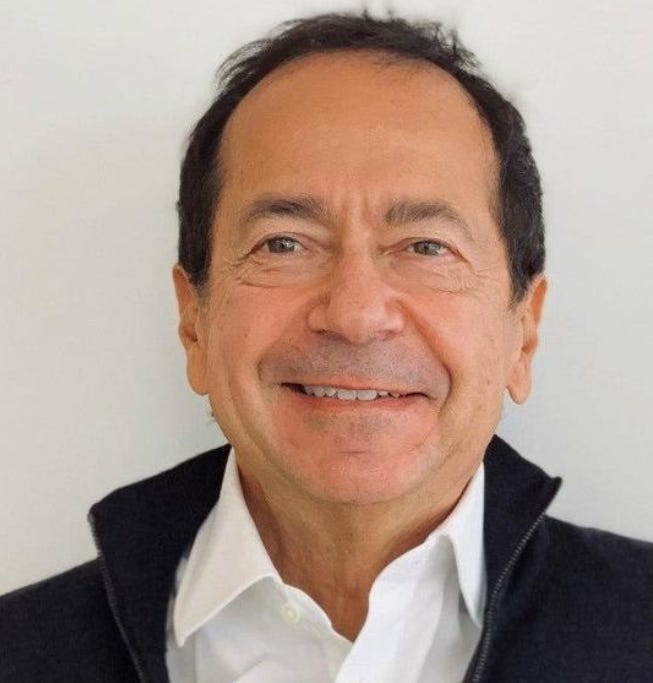Full Transcription

John Paulson, there is a lot of talk about dedollarisation, the process of substituting the U.S. currency as the medium for international trade. What is your point of view on this?
It is a key question that all investors have to deal with today. The trends are towards dedollarisation but it’ll take a while to happen. The dollar is still very dominant in terms of reserves and trade, but the U.S. post WW2 economy is not quite the powerhouse it was. Its share of world GDP has come down and the emergence of Asia, particularly China, as an alternative economic power has risen. Other countries do not want to rely on the dollar as much as they have in the past, and the U.S. also has an enormous deficit with the rest of the world in terms of trade and investment balances that used to be very positive, but now it’s very negative.
That points to the intermediate and long term depreciation of the dollar versus other currencies. The amount of money printing the U.S. central bank has done in order to stimulate the economy has also caused doubt. A lot of our growth has been based on fiscal spending that has been financed by the Fed buying the debt of government. The Fed balance sheet has exploded due to ‘quantitative easing’, a polite way of saying ‘money printing’, and inflation resulted. If you had dollars and 9% inflation, this year you lost 9% of your money; interest rates were nowhere close to compensating for that loss. That is driving investors and central banks around the world to look for an alternative reserve currency, and gold is rising again. I say again because it’s been the reserve currency of the world for thousands of years, a legitimate alternative to holding the dollar or other paper currencies.
There has been a significant increase in demand from central banks to replace dollars with gold, and we’re just at the beginning of that trend. Gold will go up and the dollar will go down, so you’d be better off keeping your investment reserves in gold at this point.
Why in gold rather than in other currencies such as Euros, Pounds, Swiss Francs?












